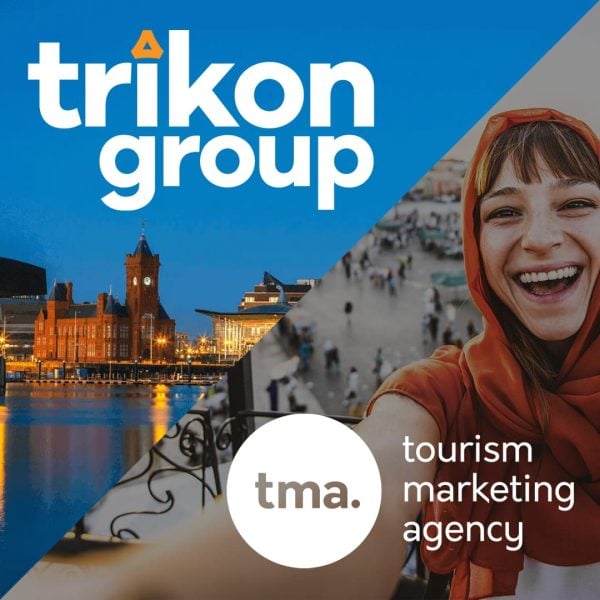The world’s most popular browser, Google Chrome, is following the likes of Apple’s Safari in restricting the use of third-party cookies and it’s our job here at the Tourism Marketing Agency to warn the tours and activity industry exactly why this is a big deal. The changes to Google’s cookie policy could mean that it will be much harder to track the efficacy of your marketing channels and campaigns. This means that you will no longer be able to use third-party cookies to see exactly which campaign or channel your bookings come in from.
A little background on cookies
For those who don’t know what a cookie is (the digital, less-delicious form), I’d like to explain in a little detail. A cookie is a piece of code that provides the website owner or webmaster with information on how a user interacts with a website — telling them how a user finds the website and also how they move through the webpages on the journey towards making a purchase. The two most well-known third-party cookies are Google Analytics and Facebook Pixel, and the insight they provide marketers is immeasurable. So, with this in mind, you will understand why Google Chrome’s intention to restrict third-party cookies is going to be a ‘ball ache’ for all tourism businesses and marketing professionals alike.
Cross-platform targeting
We’ve covered the theory; let’s look at a more practical example: cross-platform targeting. A typical cross-platform targeting strategy may look something like this: you run a Facebook campaign that directs users to a specific product page on your website and they don’t make a purchase. So, in order to hold on to the user’s attention, you run Google display ads that ‘follow’ them around the web so that they remember your brand later, when they are ready to make that purchase. Without third-party cookies, cross-platform targeting may no longer be possible.
Why is Google changing its cookie policy?
Google isn’t just trying to frustrate business owners and marketers the world over with this change in policy; it is doing this to protect its users’ privacy — which for some may seem enjoyably ironic… But Google really does seem to be taking the right steps to protect privacy and safeguard its users, however, it is not yet clear how this will work in conjunction with Google’s own advertising platform.
How might this change benefit Google?
One benefit to Google that will almost certainly come from this change, is the additional control they will have over where you spend your hard-earned ad budget. For a while now, I have been an advocate of Facebook Ads as they are a cheaper and, arguably, more targeted way of advertising to your target audience – especially as the price of Google Ads is ever increasing, which is partly due to OTAs (Check out my Battle for Tours and Activities – Part 2 for more on this topic). With Google’s changes, you won’t be able to tell in Google Analytics whether a booking on your website originated from a Facebook Ad. It’s obvious that this would benefit Google and harm Facebook. However, I do expect that you will still be able to see these transactions from within Facebook’s own analytics.
I have mainly concentrated on channels like Facebook and Google, but consider how this may affect OTAs like TripAdvisor, GetYourGuide, etc. It may end up being harder and more expensive for them to track the user journey or to create their own paid ad campaigns on Google. Time will tell…
What this means for your marketing campaigns
Although it’s very early days, it seems that you will need to run your ads on both Facebook and Google, and that you will have to keep your campaigns separate to have a chance of seeing where your customers are arriving on your site. This will increase the amount of time required to review and report on your strategies as well as possibly making it more expensive for marketing agencies.
Tracking conversions is something Google is looking at, along with Apple, who are at the early stage of developing a way that businesses and marketing professionals may be able to track conversion data without identifying the individual user. It’s still unknown whether this will be free or a paid feature…
This move will do one of two things to your marketing efforts: i) you will continue to use multiple platforms and it will just be harder, or impossible in some cases, to know where a customer’s purchase journey started or, ii) you will be forced to choose one platform and concentrate your marketing efforts on this. I suspect many will still use multiple platforms, but I urge readers to be prepared to spend more time reporting and analysing how effective they are.
How you can future proof yourself?
If you really want to be able to market your business through any channel, you need to collate and own the data you collect on your customers at the booking stage. This enables you to make better marketing decisions and create better, more-informed strategies that adhere to the rules that Google and the others have set. Collecting data on potential customers will now take more effort through email campaigns or competitions rather than relying on scraping this information from Facebook or Google. Luckily, we have been doing the former with our own customers for years so this will help offset some of the upcoming ‘issues’. If you don’t know if you’re ready for the upcoming changes to Google’s cookie policy or you’d like some help with your digital marketing, please feel free to get in touch; we’re always happy to hear from new tour and activity companies.
Google’s changes to its cookie policy also highlight something I have said many times before and I will say it again: without owning the data you collect on your customers, your business will not win in today’s digital world… and this will only become more apparent in the months and years to come.
Need more free advice?
Chris and his team will send you a weekly email offering high-value insight and advice about a variety of marketing and business development topics related to the tourism industry. We address specific destinations, tours and activities, and the hotel industry. We also provide important travel industry news and updates.

